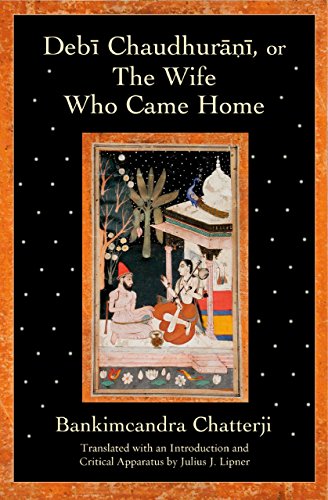My only quarrel with Julius J. Lipner relates to the subtitle of this meticulous and valuable study. ‘Study’ may seem a strange word to use for what is primarily the translation of a gripping work of fiction. Lipner’s achievement lies in combining a delighted immersion in the narrative with a concurrent grasp of its profound social and political implications. I will take up the quarrel in due course, but first the praise. Bankim is not an easy author to translate. His apparently cumbrous prose conceals a supple directness of touch, conveyed chiefly through the revolutionary simplicity of his basic sentence-structures. (This was the shared strategy whereby, in their different ways, Vidyasagar and Bankim laid the foundations of modern Bengali prose.) The Sanskritic trappings overlaying the core structure are moderated or even eschewed according to context.
In the English translations of earlier times (not excluding Bankim’s own, of which Lipner quotes a sample) this alert adjustment of register was commonly steamrolled into a uniform formality tending towards ‘Baboo English’. Today, we are in danger of eliminating the formal note altogether for an ineptly racy contemporaneity.

